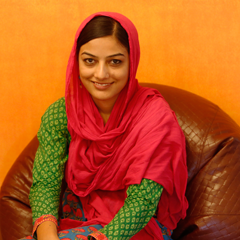
Over a hundred Nobel laureates have signed onto a letter to Greenpeace, the United Nations and to global leaders, urging them to reconsider their opposition to Precision Agriculture - Genetically Modified Organisms (GMO).
The laureates have condemned Greenpeace's stand against golden rice - a GM crop which is being seen as a potential life saver for millions across the world.
The letter has been drafted under the campaign called Support Precision Agriculture, started by Philip Sharp, the winner of the 1993 Nobel Prize in Physiology, and Richard Roberts, the chief scientific officer of New England Biolabs. The petition has also been signed by Elizabeth Blackburn, who was awarded the 2009 Nobel Prize for Medicine, and Tomas Lindahl and Paul Modrich, who won last year's Prize for Chemistry, among others.

The letter reads:
"They (Greenpeace) have misrepresented [GMOs] risks, benefits, and impacts, and supported the criminal destruction of approved field trials and research projects... How many poor people in the world must die before we consider this a 'crime against humanity'?"
What is Golden Rice?
According to UNICEF, Vitamin A deficiency (VAD) causes one to two million preventable deaths as it severely affects the immune system, putting babies and children at great risk.
"VAD itself is the leading cause of childhood blindness globally affecting 250,000 - 500,000 children each year. Half die within 12 months of losing their eyesight," UNICEF says.
To deal with the endemic, the bio-scientists have reportedly developed genetically modified lines of rice with beta-carotene, a pre-cursor of vitamin A - now known as Golden Rice (GE).
The project was aimed at providing rice for free to poor farmers. Since rice is a staple food in cultures worldwide, the cheaper, Golden Rice was touted to be a cheaper, effective solution to compensate for the deficiency of Vitamin A.
The debate
Golden Rice has always been on Greenpeace's radar which has unleashed an extensive campaign against GMOs. In an analytical report, Greenpeace stated: "GE is environmentally irresponsible, poses risks to human health, and could compromise food, nutrition and financial security."
"This GE rice is a technological fix that may generate new problems. For example, the single-crop approach of GE 'Golden' rice could make malnutrition worse because it encourages a diet based solely on rice, rather than increasing access to a diverse diet of fruits and vegetables, considered crucial to combatting VAD and other nutrient deficiencies," the report reads.
However, the open letter slams the claims. To substantiate their stand, the laureates have cited studies and review papers that have found GM crops to be safe. The letter reads:
"There has never been a single confirmed case of a negative health outcome for humans or animals from their (GM crops) consumption... For a strong action call the letter further read- "We call upon governments of the world to ... do everything in their power to oppose Greenpeace's actions and accelerate the access of farmers to all the tools of modern biology, especially seeds improved through biotechnology... Opposition based on emotion and dogma contradicted by data must be stopped."
Greenpeace's response
Greenpeace has released a statement in response to the open letter:
"Accusations that anyone is blocking genetically engineered 'Golden' rice are false. 'Golden' rice has failed as a solution and isn't currently available for sale, even after more than 20 years of research".
"Corporations are overhyping 'Golden' rice to pave the way for global approval of other more profitable genetically engineered crops. This costly experiment has failed to produce results for the last 20 years and diverted attention from methods that already work."
"Rather than invest in this overpriced public relations exercise, we need to address malnutrition through a more diverse diet, equitable access to food and eco-agriculture."
First published: 1 July 2016, 4:24 IST


![BJP's Kapil Mishra recreates Shankar Mahadevan’s ‘Breathless’ song to highlight Delhi pollution [WATCH] BJP's Kapil Mishra recreates Shankar Mahadevan’s ‘Breathless’ song to highlight Delhi pollution [WATCH]](https://images.catchnews.com/upload/2022/11/03/kapil-mishra_240884_300x172.png)

![Anupam Kher shares pictures of his toned body on 67th birthday [MUST SEE] Anupam Kher shares pictures of his toned body on 67th birthday [MUST SEE]](https://images.catchnews.com/upload/2022/03/07/Anupam_kher_231145_300x172.jpg)


_in_Assams_Dibrugarh_(Photo_257977_1600x1200.jpg)



